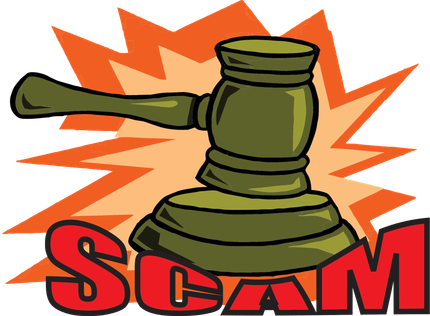STANDBY LETTER OF CREDIT SCAMS: THE CHICKEN OR THE EGG
If you don’t know what a letter of credit is, I will explain it to you. A letter of credit is a bank document that is set up based on your assets, especially liquid assets and can be drawn on for a variety of credit purposes. You may be familiar with the home equity loan, where the bank provides you with a line of credit that you can draw on based on access home equity. This is similar to obtaining a letter of credit. To obtain a letter of credit, you must already have the assets that would secure any debt covered by the letter of credit. A standby letter of credit, on the other hand is sort of an acknowledgment that you would be capable of providing a letter of credit if one was needed. In the real world, to get a standby letter of credit, t you would still have to have the assets available to support an active letter of credit. In some instances, a standby letter of credit can be used to enhance the balance sheet that would show you have the means to meet the obligations of a business deal. So how does the scam work?
A scammer contacts you, usually by email, introducing you to an international transaction that is most likely to good to be true. However with the use of concocted documents, stories, and actors all supporting the scheme, you become convinced that you might be able to benefit from this international transaction. The transaction could be the importation of goods, or the construction of a new building overseas. It could be a deal where you are able to buy gold bullion at a discounted price. In any case, if you don’t have any money at all, you will not be drawn into this scheme, because it requires a bit of cash to get involved. So the scammer tells you that to complete this transaction, you will need to deposit a certain sum of earnest money, usually in the $50-$100,000 range and you will need to obtain a standby letter of credit. As indicated above, it is important to note that in some transactions, a standby letter of credit can be used to increase apparent assets on a balance sheet, which makes it appear that you have more assets than you actually have. Whether this is legal or not is another question, but I’m sure you are aware of situations where certain individuals have inflated the value of their property to get discounts on insurance premiums, because if you are ensuring a lot of valuable properties, an insurance company might bundle them together and give you a lower rate on everything.
So the scammer tells you that by providing this standby letter of credit you will be able to increase the value of your balance sheet so you can arrange for this international transaction. Of course, they don’t define what bank you need to get a standby letter of credit from or the terms of the standby letter of credit. All they are asking for is a document from a bank that represents a standby letter of credit.
They may even suggest an international bank that could help provide the standby letter of credit. In some cases the scammer is secretly affiliated with that bank, but in others the bank is independent. As you know, nothing in this world is free and you will have to pay to arrange for the standby letter of credit. Generally, a small percentage of the value of the standby letter must be paid to obtain the standby letter of credit. So if you need a standby letter of credit for $3 million, you might have to pay 1%, which would be $30,000. Not a great expense to lay out if you are going to do an international transaction worth millions of dollars. So the person being scammed puts up whatever money is necessary to get the business deal started, that is, the earnest money. Then he obtains a standby letter of credit. Remember, in this case the standby letter of credit has no collateral backing it. The standby letter of credit is drafted in such a way that it will not become effective until that collateral is available to back up the standby letter of credit and make it an active letter of credit..
It is important to note that in a variety of jurisdictions, obviously not located within the United States, one can create an international bank with basically no assets. Such an international bank is prohibited from conducting business within the jurisdiction where the bank is domiciled for, in other words registered, but there is no limitation on what this bank can do outside of the local jurisdiction. Therefore, the bank can offer a standby letter of credit with the requirement that the letter of credit only becomes effective when the collateral is deposited or pledged. The victim is told that once he has the standby letter of credit, the collateral should become available so that there are assets backing up the standby letter of credit. The problem becomes the issue that the standby letter of credit really has no value except for the possibility of using it to enhance a balance sheet. That doesn’t go very far when trying to finance the cost of an international transaction. So it gets to the point as to what comes first, he chicken or the egg? The standby letter of credit is dependent on the collateral and the collateral is dependent on the letter of credit. This is because the scammers eventually tell the victim that standby letter of credit is insufficient to complete the international transaction. It is extremely important to remember that there was never any international transaction in the first place. The whole thing was a concocted story to draw in the victim. So, the victim has been screwed once by the scammer and once by himself. He put the money up with the scammer, and then obtained the standby letter of credit on his own that really doesn’t have any value and he is therefore unable to complete any sort of transaction. No transaction was ever going to be completed in the first place.
This is a story about the greed and the naïveté of the victim. International business deals are extremely risky and dangerous and should only be considered by those who have developed the experience and expertise in previous transactions to know whether or not the transaction they are being offered is real. 99.99% of the time it’s a scam.


